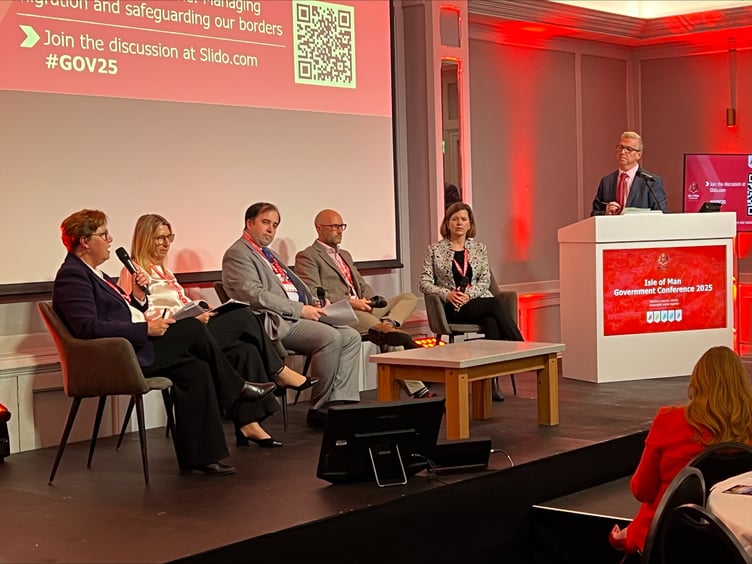Abuse of the Isle of Man’s immigration system is still taking place, the head of the service has admitted.
A review of historical visa applications was launched almost 12 months ago to identify patterns of concern.
This came after head of Customs and Immigration, Sandra Simpson, told last year’s Isle of Man Government Conference: ‘At this stage we don’t know the extent of [immigration] abuse. But the evidence is suggesting it is quite widespread.’
A year on, Cabinet Office Minister David Ashford revealed at this year’s Government Conference that the number of visas curtailed had risen from 52 in 2021-22 to 321 in 2024-25. He said the increase was driven by the review of historical applications.
Isle of Man Today spoke to Mr Ashford, Home Affairs and Justice Minister Jane Poole-Wilson and Ms Simpson about strengthening compliance.
Ms Simpson said: ‘We are still finding out what the scale of that abuse is. It’s still going on. There is a lot of compliance activity that we need to do. There are still some issues that we need to address. We are strengthening compliance within the immigration system.’
Mr Ashford said: ‘I think this is the point of having a compliance regime. You go through, and you check and you will uncover things. I would be very worried if you had a compliance regime and you suddenly found nothing at all - that would suggest you have an issue with your compliance and your checks.
‘Unfortunately, there are always people and organisations out there that will look to abuse any system.’
Asked if he was playing down the abuse, he replied that since becoming Cabinet Office Minister in November last year: ‘I haven’t seen what you would term as widespread abuse.’
On the patterns of concern identified in the review, Ms Simpson said one issue was immigrants being charged for visas, with the cost deducted from wages, leaving those on low incomes vulnerable.
Asked if any visas had been granted to people with criminal records, she replied: ‘Not specifically, no.’
When asked if anyone on the Interpol wanted list had been granted a visa, she said: ‘They wouldn’t get through the immigration process.’
On the rise in curtailed visas, and whether this showed the scale of abuse that had taken place, she said: ‘Not necessarily. If a visa was curtailed it could be for a number of different reasons and not just through compliance activities.’
Mrs Poole-Wilson said: ‘I wouldn’t want people to think we’ve got a whole load of people who’ve just arrived without any type of permission.’
She said two issues had been uncovered: cases where workers were exploited by employers deducting visa costs from pay, and technical non-compliance where migrants with job-linked visas had not informed authorities when changing employment.
Ms Simpson added: ‘We are not just talking about immigration compliance here. It might have been a company that has left the island and, of course, all those visas then need to be curtailed.’


.png?width=209&height=140&crop=209:145,smart&quality=75)

